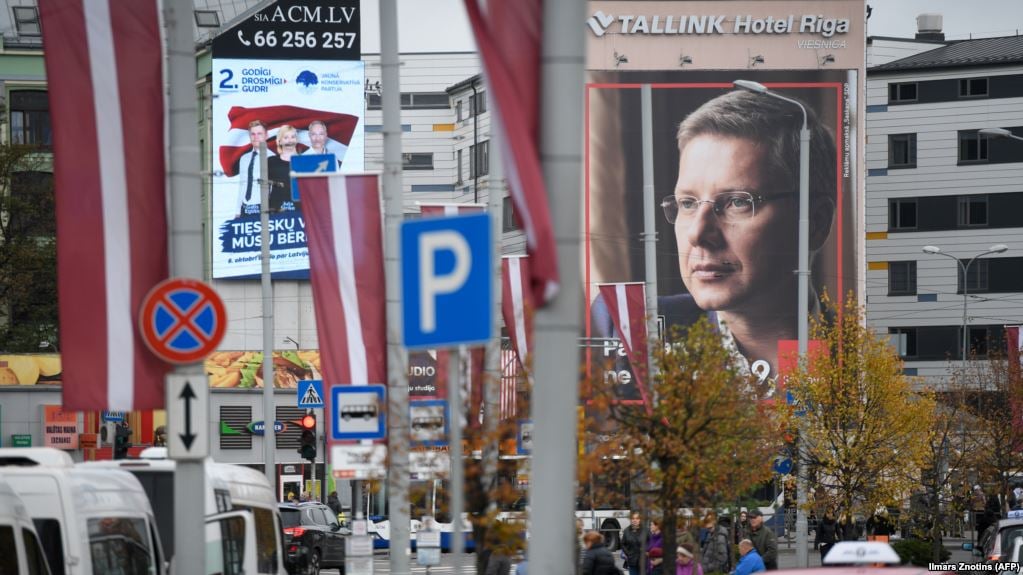
By Polygraph
“Latvia election result sparks EU crisis warning as pro-Russia party sweeps to success”
MISLEADING
There is no EU crisis in this regard.
After the results from Latvia’s parliamentary elections were announced on October 6, headlines declared a big victory for the “pro-Russian” Social Democratic Party, better known as “Harmony.”
“Pro-Russian Harmony tipped to be Latvia’s largest party following election,” a Guardian headline read.
“Populist Wave Hits Latvia, Lifting Pro-Russia Party in Election,” was the New York Times’ take.
One of the most alarmist headlines came from the The Daily Express: “Latvia election result sparks EU crisis warning as pro-Russia party sweeps to success.” The British tabloid claimed that the results “set alarm bells ringing throughout the European Union and NATO.” However, apart from a few quotes from officials like European Council President Donald Tusk, the article contained little evidence of the “EU crisis” cited in its headline.
In fact, some Latvians and Latvia-watchers cringed at such headlines, noting that the black-and-white narrative of a pro-Russia party versus pro-EU establishment did not conform to reality.
Dr. Una Bergmane, a teaching fellow at the London School of Economics, criticized international media reaction to the Latvian election results in an October 7 Facebook post.
“Technically Harmony (a party that is the main political force of Latvian Russians) got the highest number of votes 19.80% and is followed by a Trump-style populist party KPVLV (14.25%),” Bergmane wrote.
“This victory is however purely technical, as Latvia has proportional representation. Harmony will obtain not more than 23 seats out of 100 and KPVLV will get 16. To form a governing coalition one needs 51 votes in the parliament (the Saeima).”
Polygraph.info contacted Dr. Bergmane to learn how the press coverage got it wrong. She said the claim by some foreign media that the Harmony party is “pro-Russia” is an oversimplification.
“The basic idea is that on one hand, Harmony has tried to rebrand itself as a pro-EU social democratic party; it has tried to attract votes of ethnic Latvians,” she said. “Officially they would not brand themselves a pro-Russian party. The problem is we have their behavior of failing to rally behind the Latvian position on Russian aggression against Ukraine. They are against sanctions on Russia.”
Bergmane noted that Harmony once had a cooperation agreement with Russia’s ruling United Russia party, but that prior to the most recent elections, the party broke the agreement and denounced it.
Context: Ethnic Tensions in Latvia
There is internal tension among the ethnic Russian population in Latvia that occasionally rises to the surface, most recently over a reform that would require high school students be taught mostly in Latvian and not in the Russian language. Russia appealed to the Organization for Security and Co-operation in Europe (OSCE), accusing Latvia of violating the rights of minorities. About one quarter of Latvia’s population in ethnic Russian, harkening back to the Soviet era and Moscow’s “aggressive Russification policy.”
Latvia’s education minister defended the reforms as continuing Latvia “our path toward long-term development of a self-confident and independent nation.”
“Officially Harmony is trying to distance itself from Russia,” she said. “I would say this image does not correspond to reality but that’s the image they’re trying project.”
She also noted that Harmony is no longer outspoken in opposing EU sanctions against Russia.
Harmony Party in the Saeima
Bergmane also noted in her Facebook post that the Harmony party has far fewer seats in the Saeima than it needs to form a ruling coalition.
“If we look at the results, Harmony got the most votes and the highest percentage, but the results are not as good as before,” she said. “Harmony in these elections actually lost one seat and 43,000 votes.”
The publication BNE Intellinews, Business News Europe, came to a similar conclusion, pointing out that Harmony “won the most votes in the previous three elections yet it was invariably pushed aside by a coalition government of other parties, a scenario that appears likely following last weekend’s vote.”
Bergmane also had a recommendation for international journalists covering elections in Latvia and other small countries: “If people write about elections in other countries, just Google and read the most basic Wikipedia article. They could also go to the government’s website and read about the electoral system and how it works. It will make the analysis much better and it will be better for the readers. In this case, if you don’t understand how the electoral system works it’s very easy to get the wrong picture.”
By Polygraph






